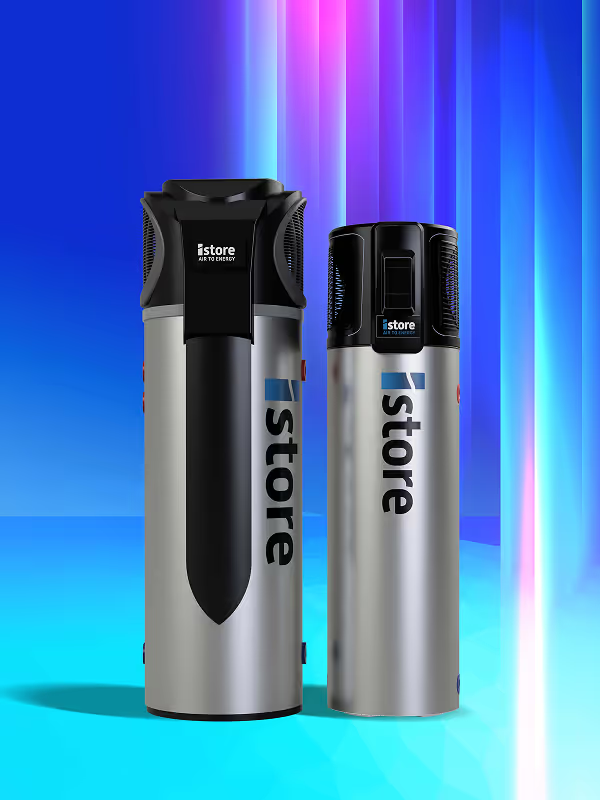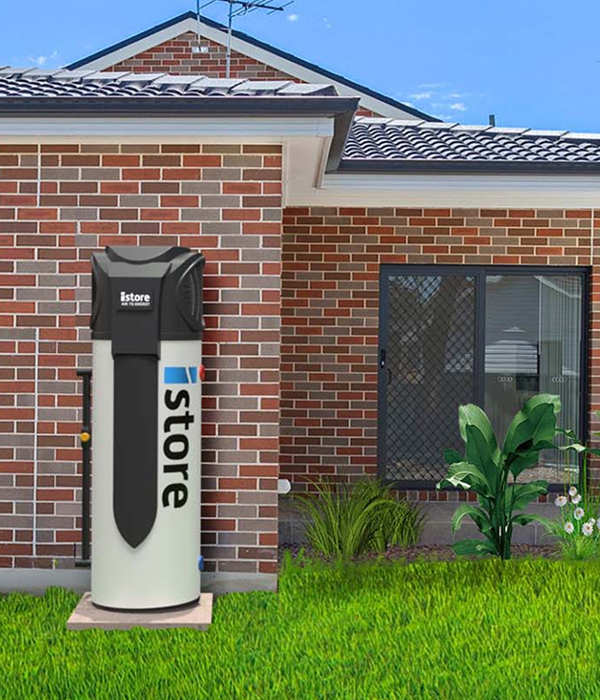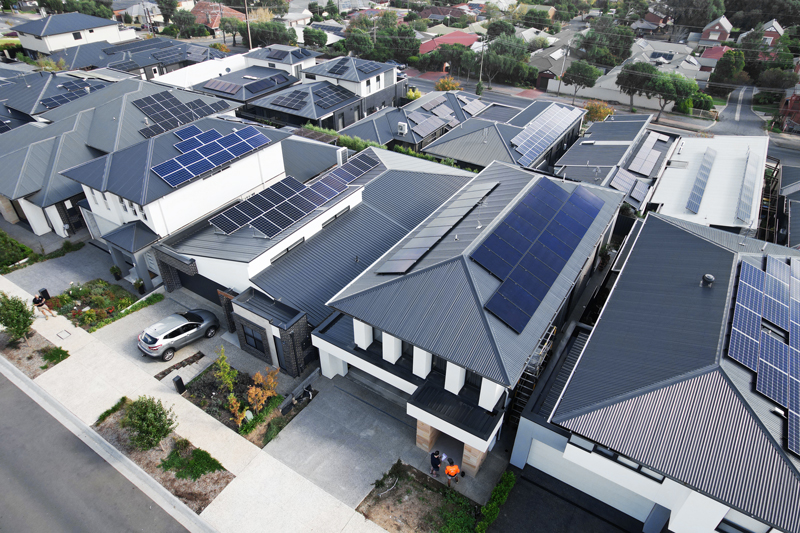




The iStore 270L heat pump is designed with Australian households in mind. One of the most efficient heat pump systems on the market, it delivers 4.82 kW of heating output for every kW of electricity consumed. The spacious 270L tank provides water for a 3-5 person household, with four intelligent operation modes that adapt to your energy use. It’s whisper quiet, and works seamlessly with your solar system.
Theres also an 180L version for smaller homes.

